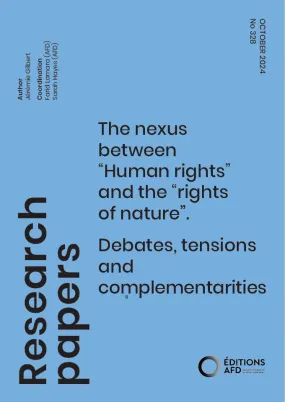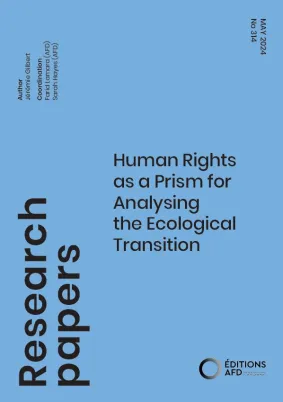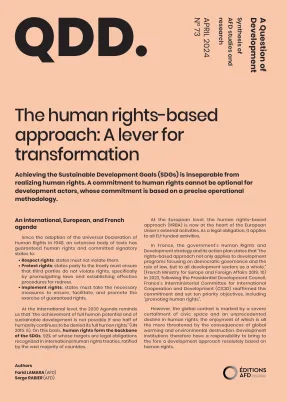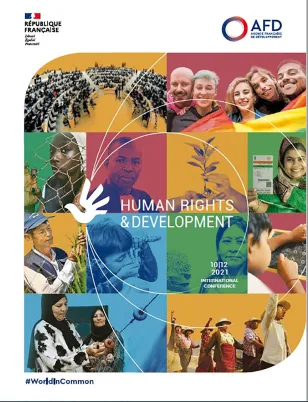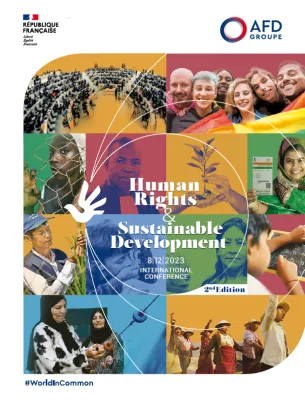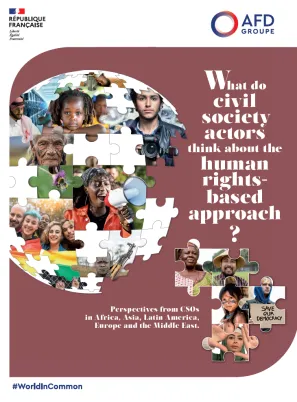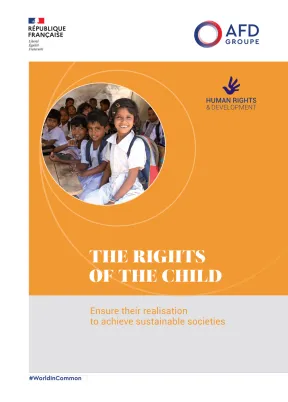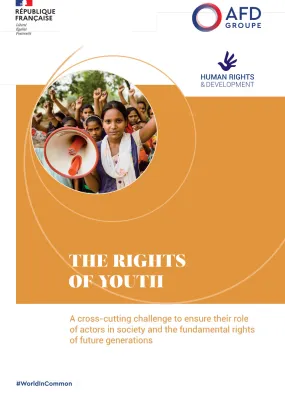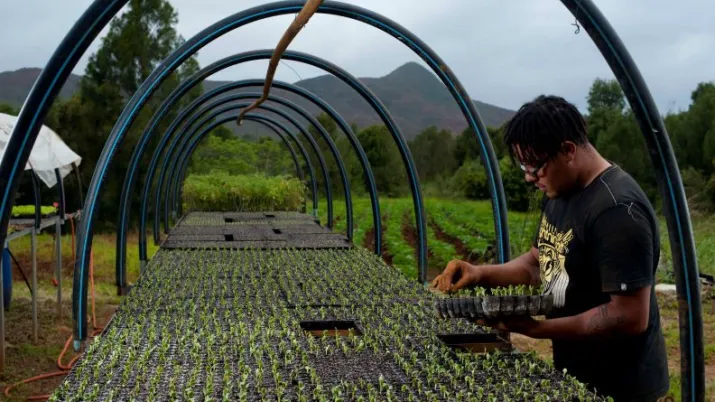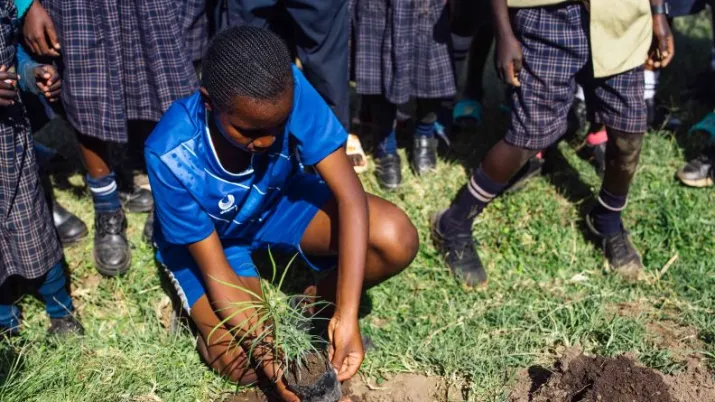Share the page
Human rights and rights of nature
Our commitment
In its Strategic Orientation Plan 2025-2030, AFD Group affirmed its commitment to protecting and promoting human rights, in keeping with the priority established by the Presidential Council for International Partnerships (CPPI) and the Interministerial Committee for International Cooperation and Development (CICID) to “support human rights, strengthen democracy, and fight disinformation”.
In line with its commitment to 100% SDG alignment, AFD Group remains extremely attentive to the continuum between the human rights enshrined in binding international treaties (economic, social, cultural, civil, and political rights) and the right to a healthy environment. In this regard, the specific issue of protecting the rights of Indigenous peoples most affected by the challenges of just transitions will receive particular consideration.
As part of its foresight work, AFD Group is also exploring emerging areas such as the rights of nature.
Our approach
Human rights comprise the backbone of the 2030 Agenda, which guides all of AFD’s actions: 92% of the targets of the 17 SDGs are directly related to obligations laid out in international human rights treaties. To achieve these goals, a human rights-based approach (HRBA) is indispensable. AFD is working to gradually mainstream this approach into all its activities.
Through its foresight work, AFD has also begun research and training to develop a more ecocentric approach. This entails promoting an approach based on the rights of all living entities, given that human rights and the rights of nature are intrinsically linked.
This goals of this approach are twofold:
- To safeguard human rights during the implementation of projects financed and managed by AFD; and
- To maximize the positive human rights impact of projects. This second goal aligns with the very purpose of development programs: helping partner countries (the duty-bearers) fulfill the human rights obligations they have freely undertaken, and supporting people (the rights-holders) in fully exercising their rights.
- Participation
- Accountability and access to rights
- Transparency and access to information
- Non-discrimination and equality
- The rule of law for all
To this end, AFD draws from five working principles, developed by the European Commission and enshrined in France’s “Human Rights and Development” Strategy:
“Human rights and sustainable development” MOOC
To find out more about this approach, sign up for our “Human rights and sustainable development” MOOC (currently available in French), where you can learn how to apply the HRBA to ensure your projects safeguard and promote human rights.
In 2018, on the occasion of the international Human Rights Day, France adopted the interministerial Human Rights and Development Strategy, in which it committed to incorporating the HRBA into its international cooperation policy as well as the activities of its public operators, including AFD Group. This commitment was enshrined in the 2021 Programming Act on Inclusive Development and Combating Global Inequalities. The promotion of human rights, and particularly children’s rights, is one of three objectives of French policy on inclusive development and reducing global inequality.
This priority was then reaffirmed, first by the Presidential Council for Development (CPD), then the Interministerial Committee for International Cooperation and Development (CICID) in 2023, and more recently by the Presidential Council for International Partnerships (CPPI) in 2025. Among the ten objectives laid out in French policy on international partnerships, France undertakes to support human rights, strengthen democracy, and fight disinformation.
In keeping with this institutional framework, AFD Group has included these priorities in its Strategic Orientation Plan 2025-2030.
It is now widely recognized that the global ecological crisis (involving the climate, the environment, and the living world as a whole) has major, multidimensional consequences for human rights, particularly for the poorest people and in the most vulnerable countries. It is therefore necessary to integrate a human rights-based approach into any action that aims to mitigate these crises.
Conversely, an approach based on human rights that does not take account of ecological issues presents a potentially destructive risk for living entities. To ensure that human rights are respected, protected, and realized, we must move away from an overly anthropocentric approach to adopt an ecocentric logic, which considers living entities – human and non-human – as a whole.
In order to explore this issue, AFD has conducted various analyses and foresight studies on the rights of nature, including a dedicated collaborative publication, published in 2024. Through some 30 case studies recognizing the intrinsic rights of natural entities at the international, regional, national, and local levels, this publication shows that the movement for the Rights of Nature, inspired by the cosmogonies of Indigenous peoples, is growing around the world.
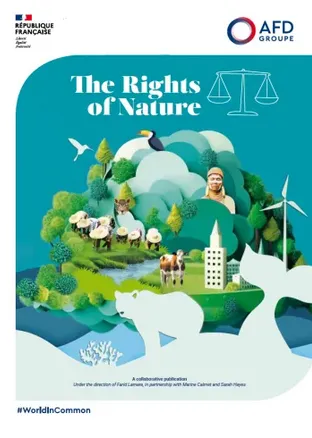
More resources
Find conference proceedings, research publications, and videos on the rights of nature and living entities.
The Rights of Nature: an open-ended conversation (Marine Calmet, Philippe Sands, Rémy Rioux)
Why do we need to move away from an anthropocentric approach to rights? Why should nature have rights? What lessons can be drawn initial experiments? For the release of the collaborative publication “The Rights of Nature”, edited by Marine Calmet and Farid Lamara and published by AFD, Farid joined Marine along with Philippe Sands and Rémy Rioux at the “Agir pour le vivant” festival. They discussed the origins of these rights, how they are defined, and their transformative potential. Their ecocentric logic considers living entities as a whole. And that changes everything.


